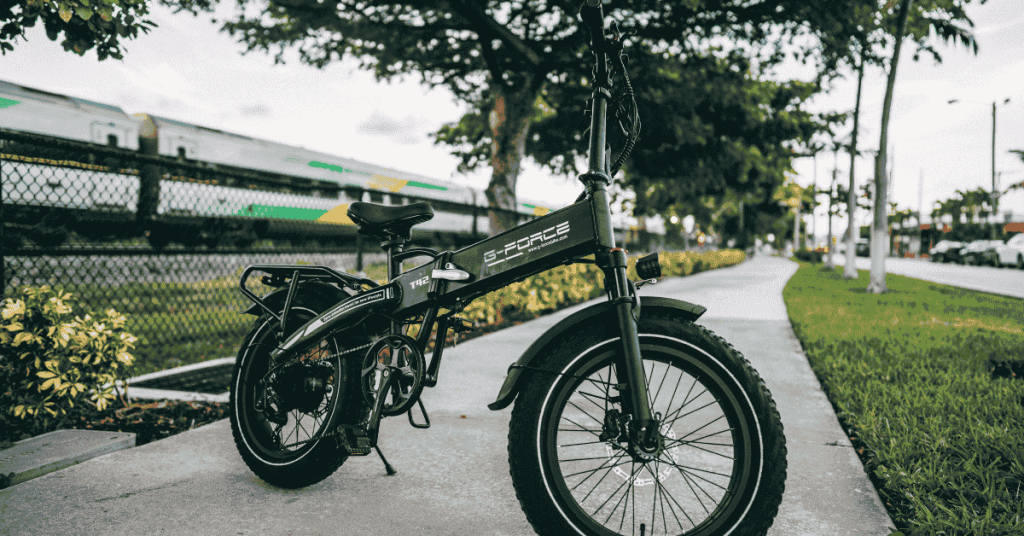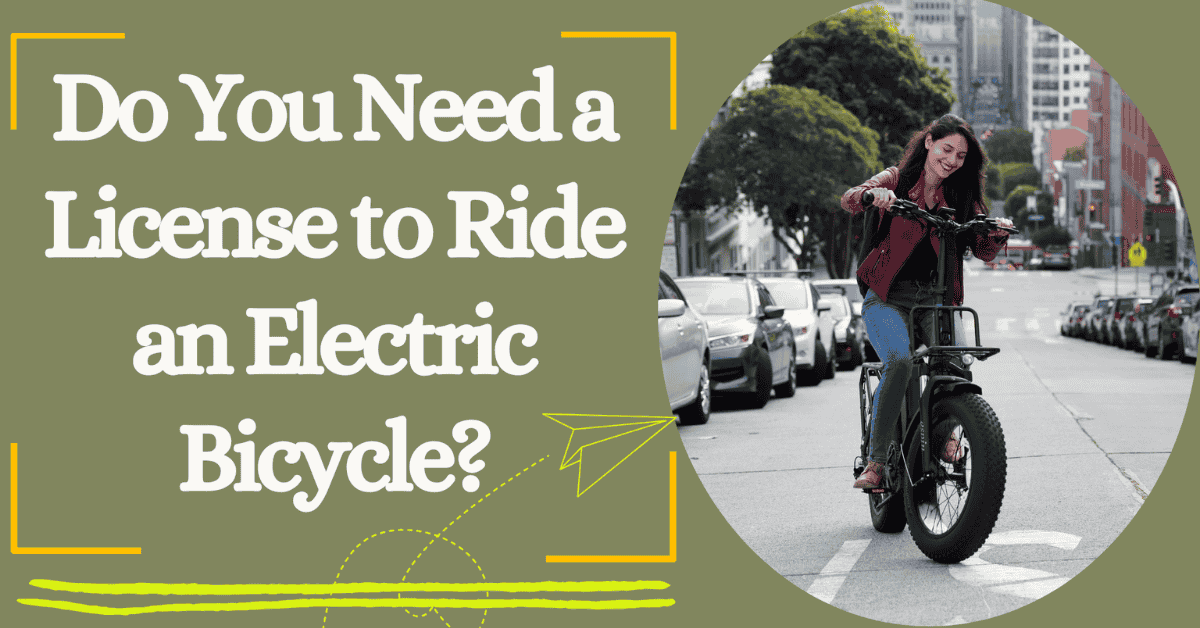Electric bicycles (e-bikes) have transformed transportation by offering an enjoyable, low-impact, and efficient way to move through life. Whether you’re commuting, exercising, or just out for the occasional stroll, e-bikes provide a practical alternative to traditional vehicles. However a key question for potential e-bike users arises: Do you need a license to ride an electric bicycle? It’s critical to comprehend the laws and regulations surrounding electric bikes to ensure that you’re riding legally and safely. So let’s get right into this topic, providing a complete reference to stateside e-bike licensing requirements as well as internationally.
What Is an Electric Bicycle?
An electric bike is a two- or three-wheeled vehicle that derives its power from an electric motor. There are two main types:
- Accumulatively powered motorcycles (Pedal-Assist): These e-bikes use motors to help if you begin pedaling, allowing for easier hill climbs or better speed.
- Fully Electric Transmission Bikes: These bikes can ride without pedaling at all, relying exclusively on the motor for propulsion.
Both styles have rechargeable batteries, and typically feature speeds of up to 20-28 mph, depending on the model and local regulations. The main thing that sets this rule apart from regular bicycles is that with the presence of the motor comes another layer of legal regulation.
 Do You Need a License to Ride an E-Bicycle?
Do You Need a License to Ride an E-Bicycle?
Whether or not you can ride your e-bike on the road or a bike path will depend on how you classify your e-bike, as well as where you live. The U.S. bicycle industry governs Electric Bicycles with a three-class system:
- Class 1: Pedal-assist bicycles with a top speed of 20 mph. No license is required.
- Class 2: Bicycles with throttle assistance and a top speed of 20 mph.
- Class 3: Pedal-assist bikes with a maximum speed of 28 mph. Each state has different licensing requirements.
In general, if your e-bike goes faster than 28 mph and has a motor powering it greater than 750 watts, the vehicle is classified as a motor vehicle, and you will need a license, registration, and insurance.
State-by-State Review of E-Bicycle Laws
States have widely varying e-bike regulations. Here’s an overview:
E-bike licening requirements vary by state, with receipts and some already falling into e-bike laws with specific speed or powerrelated requirements. For example:
- California: Riders of Class 3 Electric Bicycles must be at least 16 and wear a helmet. Class 1 and 2 Electric Bicycles do not require a license.
- Hawaii: Electric Bicycles must be registered, and their riders must be at least 18.
- New York: A license is required for Class 3 Electric Bicycles.
States Where No License Is Needed
- Most states, like Florida, Texas and Michigan, do not require a license for a Class 1 and 2 Electric Bicycle. But these states have certain restrictions on speed and motor power so that Electric Bicycles are not confused with other motor vehicles.
 Licensing Requirements: What are the Major Determinants?
Licensing Requirements: What are the Major Determinants?
Whether you need a license to ride an Electric Bicycle depends on a few things:
- Speed: E-bikes that can reach speeds above 20mph without pedaling usually fall under motor vehicle regulations.
- Motor Power: Powered bikes with more than 750 watts are considered mopeds or motorcycles, depending on the jurisdiction where they operate.
- Local Legislation: In some places, authorities can implement unique regulations for e-bikes, such as setting up specific age limits or the requirement to wear a helmet, even if it is a low-speed vehicle.
Helmet and age requirements.
The minimum age to ride and the requirements for wearing a helmet vary from state to state. As an illustration, all Class 3 e-bike riders are required to wear helmets in California and Connecticut.
- E-bike classifications in the U.S.: Class 1 e-bikes are allowed a maximum speed of 20 mph in most places, as well as the remaining classification systems, which should be considered based on the mentioned recommendations.
- International perspectives: In Europe, bikes with a motor power of over 250 watts and a speed of 15.5 mph are prohibited. To drive faster or more powerful bikes, drivers must follow road rules.
Why Licensing Matters
Licensing may be required in some instances to ensure that individuals know the traffic laws and their responsibilities as drivers. Once the technologies that support the bikes develop, the appropriateness of such vehicles will fall under question in terms of the safety impact and the presence of the road infrastructure.
Regardless of whether or not you live in a place that has licensing requirements, safety is your main concern when riding an e-bike:
- Even if they have multiple uses — you should wear a Helmet: It protects your head when something goes wrong.
- Obey the Laws of the Road: Adhere to speed limits, stop signs, and traffic signals.
- Be Visible: Make use of lights and reflective clothing, particularly at night.
- Inspect Your Bike: Regularly check brakes, tires, and battery levels.
- Keep Your Head Up: Look for pedestrians, vehicles and other bicycles.
What to Do With an Old E-Bike
If you are upgrading to a new e-bike, here are some options for what you can do with your old one:
- Recycle: Bring your old bike to a recycling center.
- Donating: There are a number of charitable organizations that take working e-bikes.
- Resell: If your e-bike is well maintained, find a buyer on the internet, or at a physical shop.
FAQs About E-Bike Licensing
- Do I have to have a license for all Electric Bicycles?
- No, a license is necessary only for e-bikes that exceed speed or power limits. For details, check your local laws.
- Do an age restrictions for riding an Electric Bicycles exist?
- Yes, the age restrictions differ by state. Riders must be at least 16 years old in the majority of states.
- Do e-bikes require insurance?
- In most situations, there is no legal requirement for e-bike insurance, although some sort of protection against loss or damage is definitely recommended.
- Can I take an e-bike on bike paths?
- It all depends on what class your e-bike is and where you live. Class 1 e-bikes are typically allowed, while Class 3 may be banned.
Conclusion
Do you need a license to ride an electric bicycle? The type of e-bike and local regulations will largely determine the response. While high-speed e-bikes (Class 3) might need a licence, low-speed e-bikes (Class 1 and 2) are typically operated without one. Local laws may vary, so make sure to read up on the rules in your area, and don’t forget the need for a helmet! Knowing the law and what you can and can’t do when it comes to riding an e-bike means that you can get out on the road and enjoy all the benefits that come with cycling without the negative actions associated with breaking the law.
Best regards,
~Team BikeBicycler
